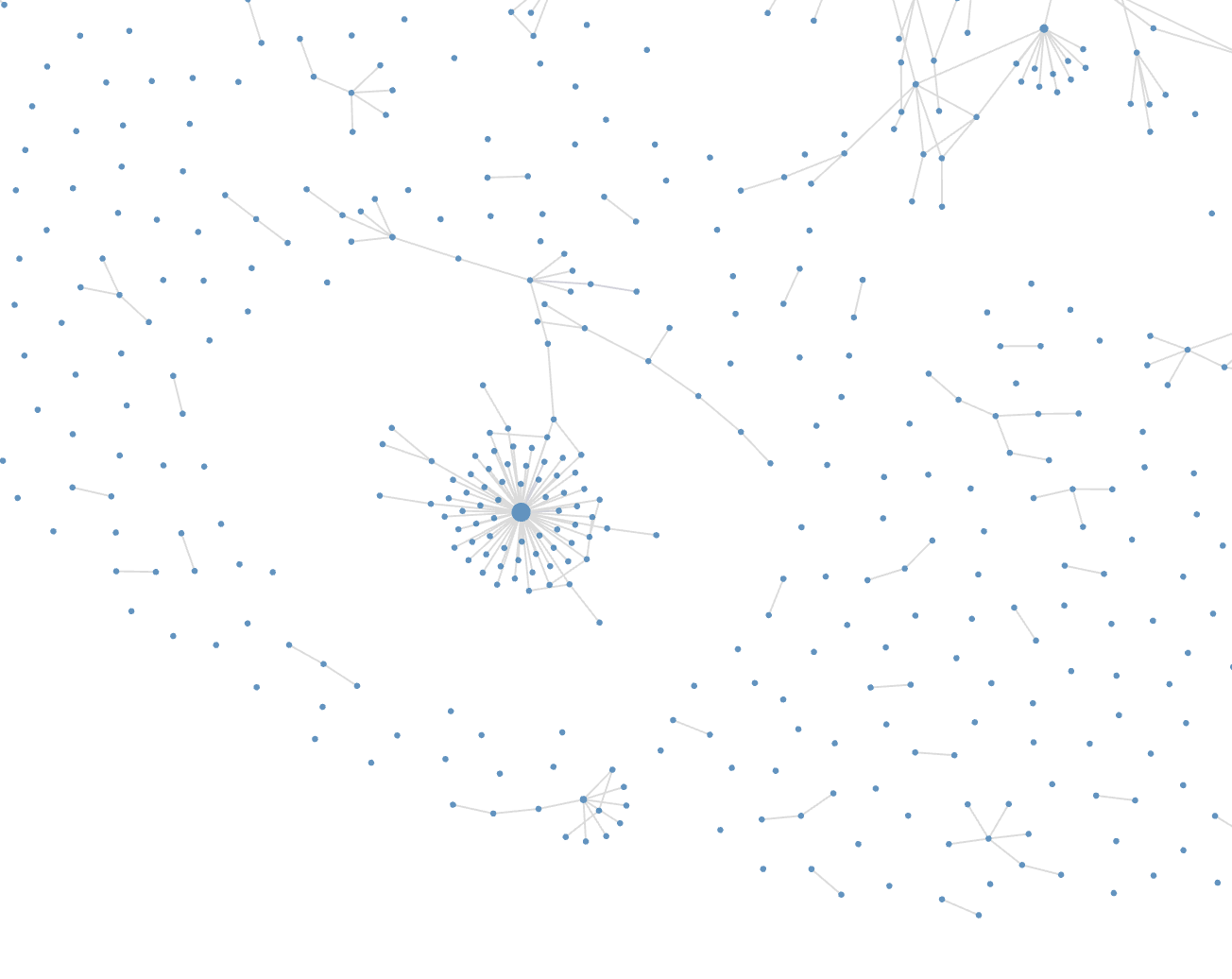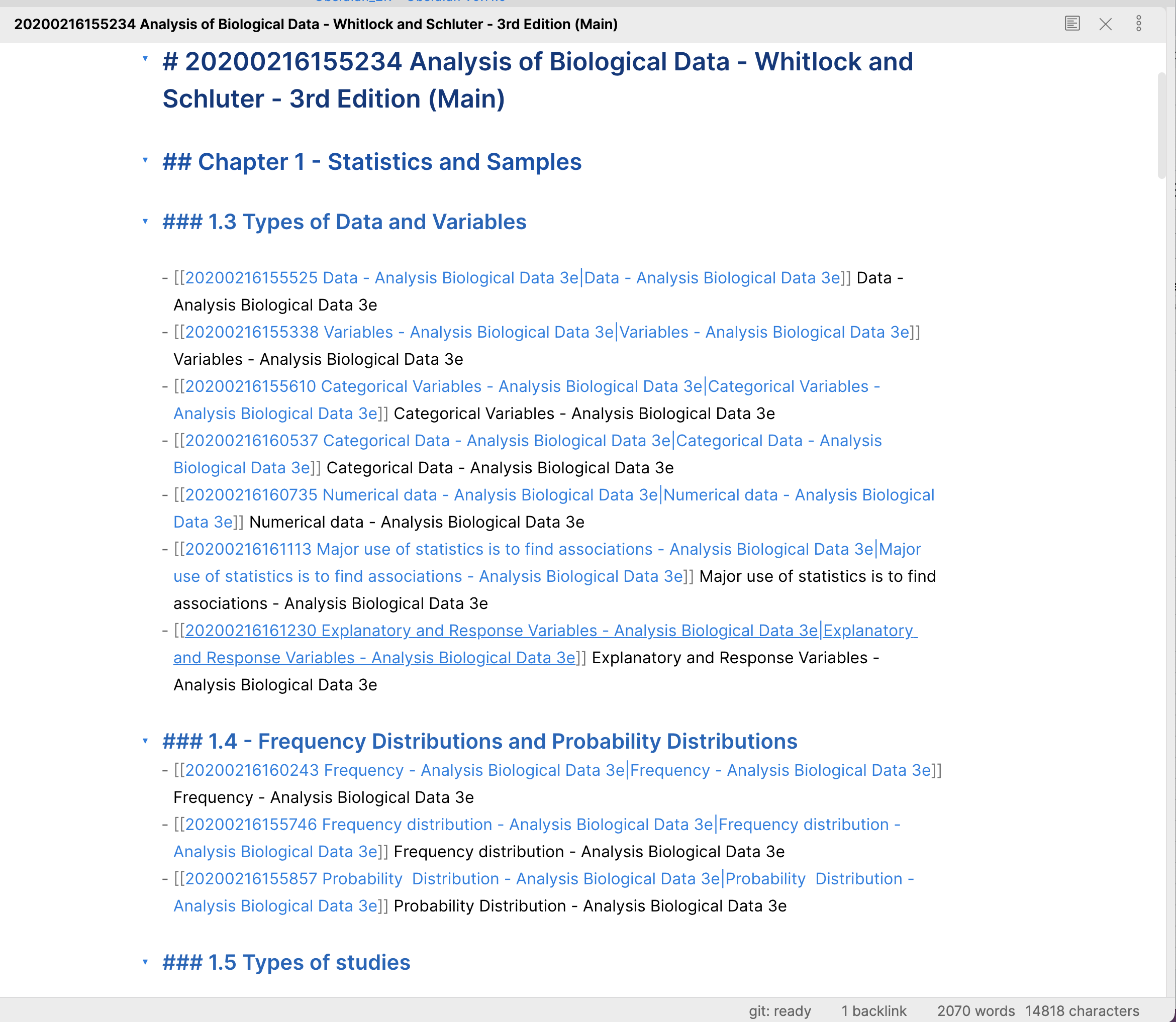Workflow for technical books notes
Hi all,
I’d like to create notes for technical books (math, software, etc). The ZK approach is great to link ideas but I’m aiming at something a bit different.
I want to create notes which are summaries of books I read so that if I want to read it back, it greatly speeds up the reading/understanding process. Basically those notes should be like articles or very short books, following the same structure as the original book. They also have to be self contained as much as possible.
I thought about doing this :
- Per chapter approach with a detailed summary of the concepts and approach as well as required example when they’re needed for the understanding.
Since those notes are more structured and should be final, have them live in a different directory than the usual zettelkasten stuff, dedicated to writing.
What’s your workflow in this case where the structure is stricter and the content denser than what you’d usually read?
Thanks
Howdy, Stranger!
Comments
@Null: If I think that I will likely have to revisit a book in the future and might then have forgotten its structure and content, I also make permanent notes that summarise the book – as you describe. I include these in my zettelkasten. I would have one note about the goal of the book and its overall structure as an "entry point" and link to notes on the highest-level sections/chapters from there. From the chapter notes, I might link to even more specific notes on sections in these chapters – depending on how complex the book is. This could in theory go many levels deeper.
If a certain idea/thought or important concepts appear in the book that I have separate notes to in my zettelkasten, I will also link to these notes from the relevant summary note – in order to compare the author's view with my other notes on the issue.
Thanks for the answer, I was thinking about having concept notes linked to books notes. The concepts can move freely and be linked to other works while the book notes will attempt to summarize the book and stay close to the source material.
There are concepts that do not confine themselves to specific chapters. The author's chapter division may not be the optimal division for the insights and extractions you will take from the text. For example, often a concept referenced in one chapter is referred to in different language or different analogies/examples in later chapters.
My approach is to start with the author's chapter division and then allow the notes to gradually rearrange and regroup into meaningful topic-based divisions when and where that makes sense.
My approach with non-fiction is much like @davecan's.
I found a ton of inspiration from https://forum.zettelkasten.de/discussion/1232/extracting-ideas-from-texts-my-epiphany and have had great success when applying the "Idea Index" workflow.
Will Simpson
My peak cognition is behind me. One day soon, I will read my last book, write my last note, eat my last meal, and kiss my sweetie for the last time.
My Internet Home — My Now Page
I create a whole literature note for the book that I am reading similar to what Ali Abdaal does with Notion. I take notes on each chapter and reflect on the book. From there I take anything that should become an Atomic Note and turn it into one. As I am taking notes, thought strings I want to explore, emerge, and I create empty links to a future note that I have not written so that I can always add it when needed. Attached is my in progress literature note for How to Take Smart Notes.
You could make one master note (Structure note) for the entire book, that could follow the TOC of that book. You can the make atomic notes under chapter headings. If you want to make a summary note for each chapter, that could also be another kind of note type that could live within the main structure note.
Here is an example of such a method applied to a statistics book.


This is basically a way for me to get the 'atoms' out of a book in a semi-organized fashion.
You can then have other notes in your ZK that revolve around concepts (say standard error), and you can then link to the atoms in the current book and any other atomic notes from other sources.